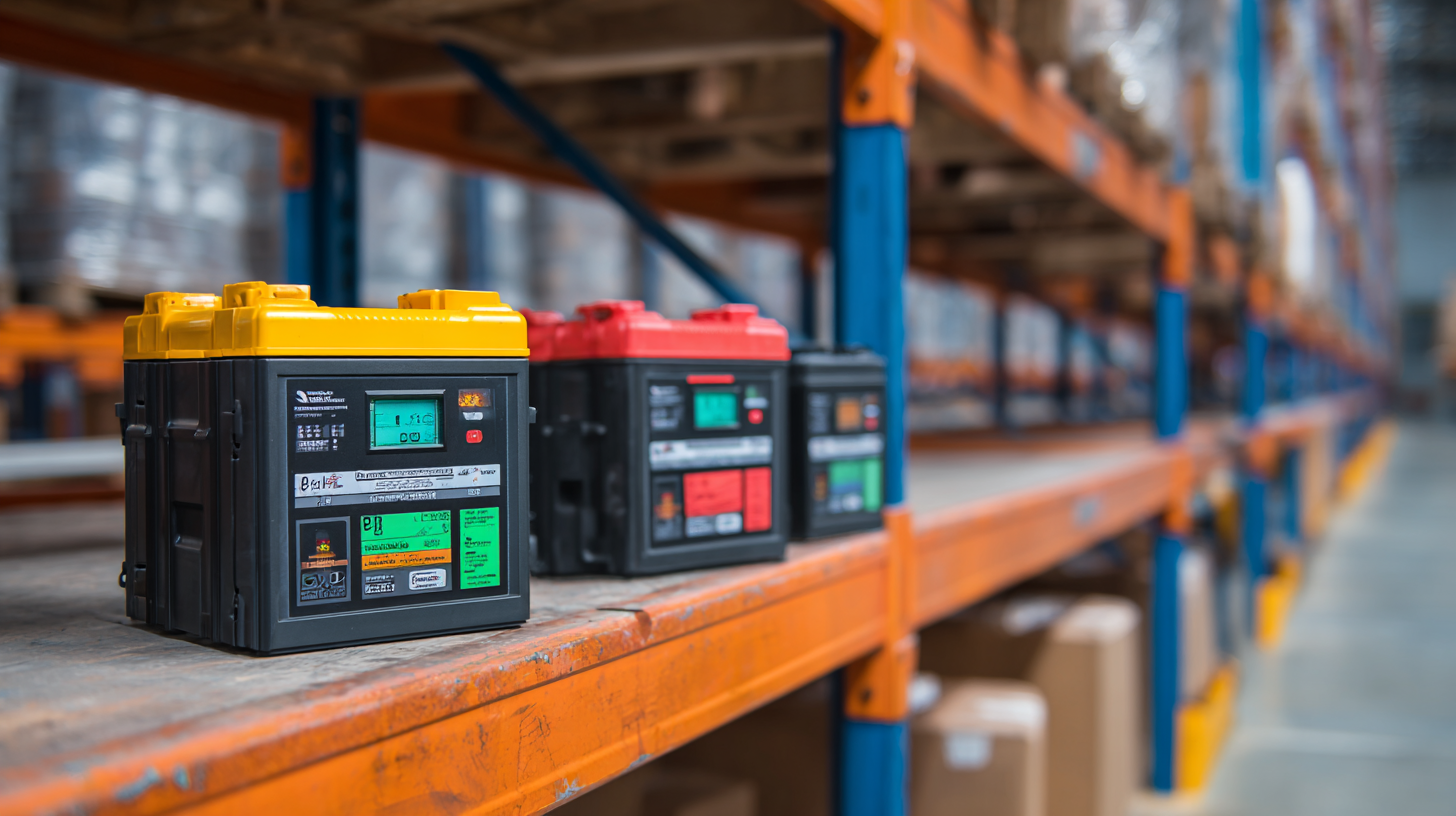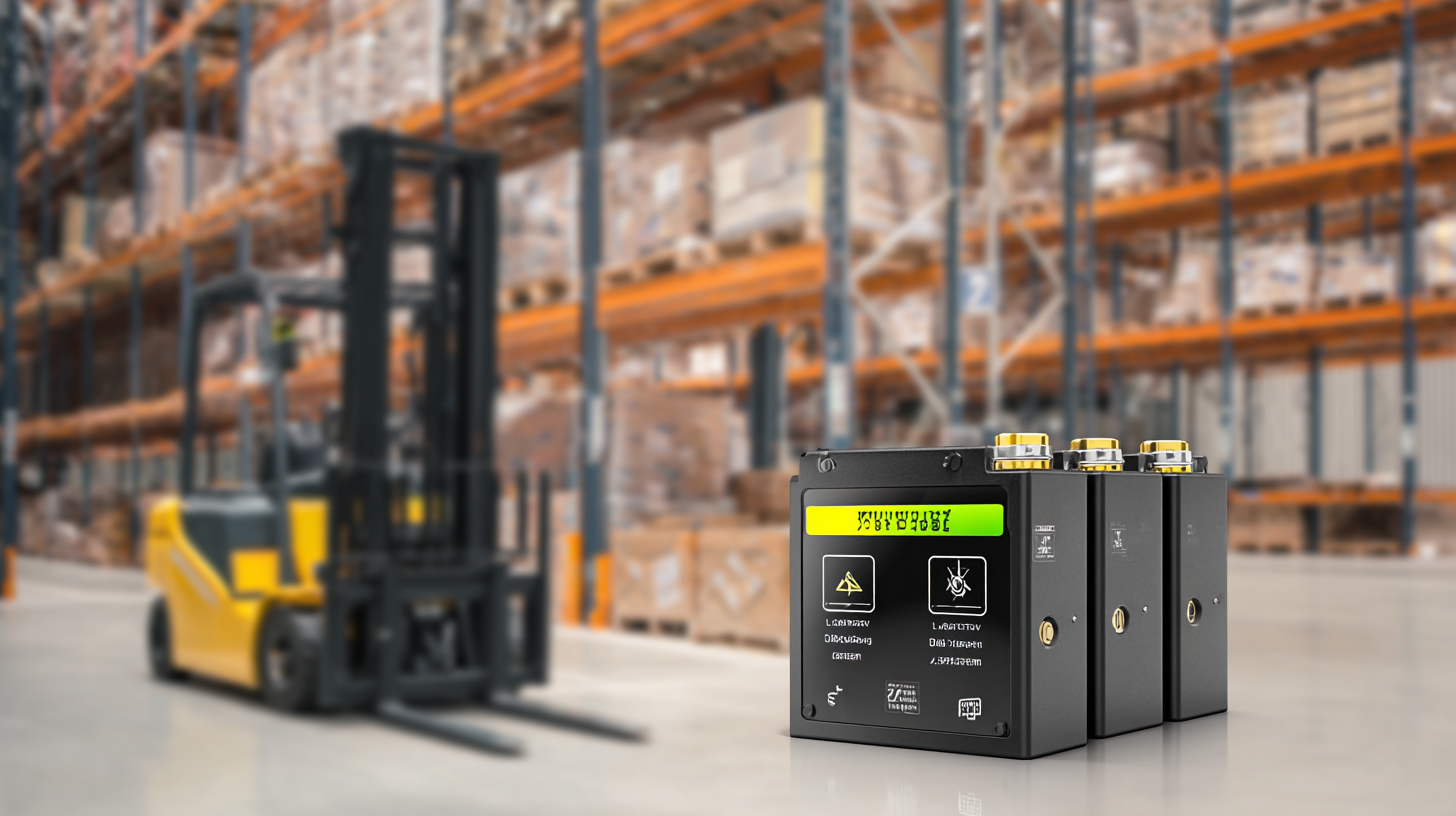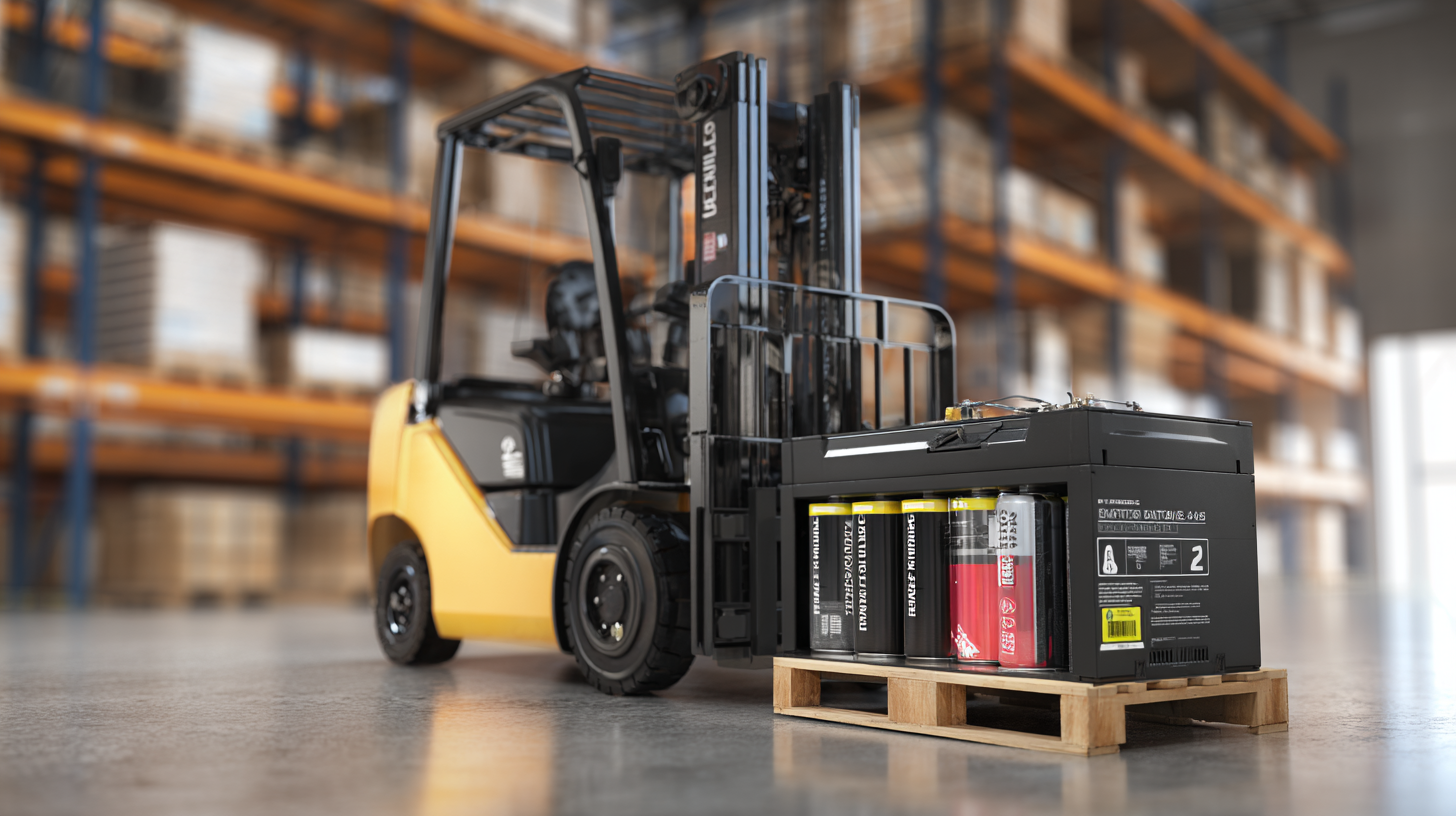- English
- Español
- Português
- русский
- Français
- 日本語
- Deutsch
- tiếng Việt
- Italiano
- Nederlands
- ภาษาไทย
- Polski
- 한국어
- Svenska
- magyar
- Malay
- বাংলা ভাষার
- Dansk
- Suomi
- हिन्दी
- Pilipino
- Türkçe
- Gaeilge
- العربية
- Indonesia
- Norsk
- تمل
- český
- ελληνικά
- український
- Javanese
- فارسی
- தமிழ்
- తెలుగు
- नेपाली
- Burmese
- български
- ລາວ
- Latine
- Қазақша
- Euskal
- Azərbaycan
- Slovenský jazyk
- Македонски
- Lietuvos
- Eesti Keel
- Română
- Slovenski
- मराठी
- Srpski језик

How to Select the Best Forklift Lithium Battery Manufacturer for Your Business Needs
In the rapidly evolving landscape of material handling, selecting the right Forklift Lithium Battery is critical for enhancing efficiency and reducing operational costs. According to a report by Research and Markets, the global lithium-ion battery market for forklifts is expected to reach $1.5 billion by 2027, driven by the demand for more sustainable and high-performance energy solutions. Investing in high-quality lithium batteries not only increases the lifespan of forklifts but also optimizes power consumption, resulting in lower long-term expenses. As such, identifying a reliable manufacturer that meets specific business needs has become paramount for warehouse and logistics operators. This blog will guide you through key considerations and comparisons to help you make an informed decision when selecting the best Forklift Lithium Battery manufacturer tailored to your operational requirements.

Understanding the Unique Requirements of Your Forklift Operations
When selecting a lithium battery manufacturer for your forklift operations, it’s crucial to understand the unique requirements specific to your business. Each operation may demand different power capacities, charging times, and environmental considerations depending on the intensity of use and the working environment. For instance, warehouses with extensive operational hours may require batteries with rapid charging capabilities and extended lifespans to minimize downtime and maximize efficiency. Assessing these operational needs lays the foundation for a successful partnership with a manufacturer.

Another critical aspect is the compatibility of the lithium battery with existing forklift models. Not all batteries are created equal; therefore, ensuring that the chosen battery aligns with your forklifts is essential for optimal performance. Additionally, consider the manufacturer’s support services, such as maintenance training and technical assistance, which can significantly impact your operational workflow. By taking the time to thoroughly evaluate your requirements and the manufacturer’s offerings, you can select a solution that enhances productivity and extends the lifecycle of your fleet.
Key Factors to Evaluate When Choosing a Lithium Battery Manufacturer
When selecting a lithium battery manufacturer for forklifts, it’s crucial to evaluate several key factors to ensure you meet your business needs. One primary consideration is the manufacturer’s experience and expertise in the field. Reports indicate that companies with over 10 years in lithium battery production tend to offer superior product reliability and customer support. This experience often translates into a rigorous understanding of regulatory standards and industry best practices, which are essential for ensuring safety and compliance.
Another critical factor is the technology and innovation behind the manufacturing process. According to a recent industry study by Grand View Research, advanced lithium-ion battery technologies can enhance energy density by up to 30%. This improvement not only increases the efficiency of your forklifts but also reduces downtime through longer operation times. When assessing potential manufacturers, inquire about their R&D capabilities to ensure they are at the forefront of battery technology.
Tips: Always request samples to evaluate performance firsthand. Additionally, consider the manufacturer’s after-sales service and warranty options; strong support can substantially mitigate risks associated with battery failure. Lastly, ensure that they have a clear sustainability policy, as the demand for environmentally friendly practices continues to grow within the industry.
Analyzing Manufacturer Reputation and Customer Feedback
When selecting a lithium battery manufacturer for your forklift needs, analyzing manufacturer reputation and customer feedback is crucial. A recent industry report indicates that companies with positive customer reviews tend to maintain higher standards of product quality and service. In fact, nearly 70% of businesses reported improved operational efficiency after switching to reputable manufacturers, highlighting the importance of thorough research before making a commitment.
Tips: Look for manufacturers with ISO certification and those that have been in the industry for over a decade. This often indicates a stable and reliable company. Utilize platforms such as Trustpilot and Google Reviews to gauge customer sentiments and trends.
Consistent feedback on performance and durability can significantly impact your decision. More than 60% of fleet managers cite battery life and reliability as top priorities when choosing a supplier. Therefore, take the time to reach out to existing customers for their insights, as firsthand experiences can uncover potential issues that aren't evident from company literature alone.
Comparing Technology and Innovation in Lithium Battery Solutions
When selecting the best lithium battery manufacturer for your forklift needs, it is essential to focus on the technology and innovation they offer. With a recent surge in advancements, companies are moving beyond traditional lithium-ion solutions to explore next-gen technologies. For instance, certain manufacturers are now introducing intelligent lithium-ion systems that enhance efficiency and usability in commercial applications. This shift not only optimizes performance but also aligns with the growing demand for sustainable energy solutions.
Tips for evaluating a manufacturer include assessing their commitment to innovation. Look for partnerships that signify a forward-thinking approach, such as collaborations that leverage new technologies or that enhance battery safety and capacity. Additionally, consider companies that have made strides in recycling practices, as sustainability is a key factor in modern battery solutions.
Another important aspect is certifications and safety standards. A manufacturer that has been certified by recognized safety organizations can provide peace of mind regarding the durability and reliability of their lithium batteries. Always ensure that the chosen provider meets stringent quality benchmarks to guarantee the longevity and performance of your battery systems.

Cost vs. Performance: Making Informed Financial Decisions for Your Business
When selecting a lithium battery manufacturer for forklifts, making informed financial decisions is essential. The interplay between cost and performance plays a crucial role in determining the right fit for your business. According to a report by Fortune Business Insights, the global lithium battery market is expected to grow to $100 billion by 2028, indicating a competitive landscape where cost-efficient options are indispensable. However, the lowest price does not always guarantee the best performance. Investing in high-quality batteries can lead to substantial long-term savings on maintenance and operational downtime.
**Tips:** Always evaluate the total cost of ownership (TCO) rather than just the upfront cost of the battery. A high-performance lithium battery may have a higher initial expenditure but can provide more cycles, improved charging efficiency, and lower energy consumption, ultimately saving you money over time.
Additionally, consider the manufacturer’s reputation and customer reviews. According to a survey from Technavio, companies that prioritize customer satisfaction often experience a 15% higher retention rate. Choosing a trustworthy manufacturer can ensure you receive reliable, high-performing batteries tailored to your operational needs.
How to Select the Best Forklift Lithium Battery Manufacturer for Your Business Needs
| Manufacturer | Battery Capacity (Ah) | Cycle Life (Cycles) | Warranty (Years) | Average Cost ($) | Performance Rating (1-5) |
|---|---|---|---|---|---|
| Manufacturer A | 500 | 2000 | 5 | 3000 | 4 |
| Manufacturer B | 600 | 2500 | 4 | 3500 | 5 |
| Manufacturer C | 480 | 2200 | 3 | 2900 | 3 |
| Manufacturer D | 550 | 2400 | 6 | 3200 | 4 |
| Manufacturer E | 700 | 3000 | 5 | 4000 | 5 |
